Available on YouTube

A conference about energy control and metabolism
On March 11, 2025, Metabolism Day will bring together researchers within the field of metabolism to discuss the latest science in cardiometabolic diseases and energy control. It is hosted and organized by the Novo Nordisk Foundation Center for Basic Metabolic Research (CBMR) at the University of Copenhagen.
Live stream & Program
Speakers
Read more about the speakers and their talks below.
Talk title: 'Alteration in glucose and lipid metabolism in MASLD'
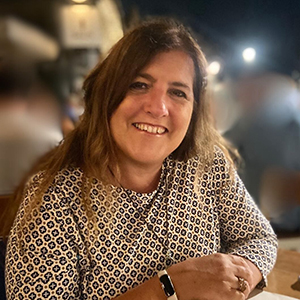 Amalia Gastaldelli is a Research Director at the Institute of Clinical Physiology of the CNR in Pisa, Italy, where she heads the Cardiometabolic Risk Group and the Multi-Omics Mass Spectrometry Laboratory. She is also Adjunct Professor of Medicine at the Diabetes Division of the UT- Health, in San Antonio, Texas, USA, and Affiliate Professor at the Sant'Anna School of Advanced Studies in Pisa. Her research focuses on the pathophysiological mechanisms of metabolic diseases (mainly MASLD-Metabolic dysfunction Associated Steatotic Liver Disease (MASLD), Obesity and Type 2 Diabetes) and on the alteration of metabolic fluxes and hormone secretion and action.
Amalia Gastaldelli is a Research Director at the Institute of Clinical Physiology of the CNR in Pisa, Italy, where she heads the Cardiometabolic Risk Group and the Multi-Omics Mass Spectrometry Laboratory. She is also Adjunct Professor of Medicine at the Diabetes Division of the UT- Health, in San Antonio, Texas, USA, and Affiliate Professor at the Sant'Anna School of Advanced Studies in Pisa. Her research focuses on the pathophysiological mechanisms of metabolic diseases (mainly MASLD-Metabolic dysfunction Associated Steatotic Liver Disease (MASLD), Obesity and Type 2 Diabetes) and on the alteration of metabolic fluxes and hormone secretion and action.
She is currently President of the European MASLD Study Group affiliated to the EASD, which she founded in 2012 and President of the EGIR-European Group for the study of Insulin Resistance since 2018. In 2016 and 2023 she was part of the EASL-EASD-EASO committees for clinical guidelines for the management of MASLD.
Talk title: 'Mitochondrial mechanisms of age-related metabolic diseases'
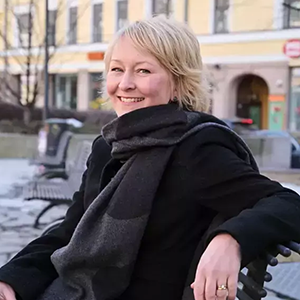
Anu Suomalainen is Professor of Clinical Molecular Medicine, Academy Professor, and the Director of the Stem Cells and Metabolism Research Program at the University of Helsinki. She received her MD PhD degree from the University of Helsinki, and worked as a visiting scientist/ postdoc/visiting professor in Columbia University, Montreal Neurological Institute, and UC Berkeley, respectively.
She heads the Mitochondrial Medicine research group focusing on molecular metabolic pathophysiology of mitochondrial and degenerative disorders, and uses molecular knowledge for developing tailored treatments.
Talk title: 'Translational Genomics of Type 2 Diabetes'

Prof. Eleftheria Zeggini, FMedSci | Eleftheria Zeggini obtained a BSc in Biochemistry and a PhD in Immunogenetics of Juvenile Arthritis from the University of Manchester. Following a statistical genetics post doc at the Centre for Integrated Genomic and Medical Research in Manchester, she moved to the Wellcome Trust Centre for Human Genetics in Oxford to undertake a post doc in type 2 diabetes research.
In 2008, she joined the Wellcome Sanger Institute Human Genetics Faculty where she built a programme of work to advance analytical genomics of complex traits. In 2018, she moved to Helmholtz Munich as founding Director of the Institute of Translational Genomics, and since May 2020 holds the TUM Liesel Beckmann Distinguished Professorship at the Technical University Munich School of Medicine.
Her research aims to translate insights from genomics into mechanisms of disease development and progression, shortening the path to translation and empowering precision medicine.
Talk title: 'Mendel's Peas as Exemplar or Exception? New Light from an Old Debate'
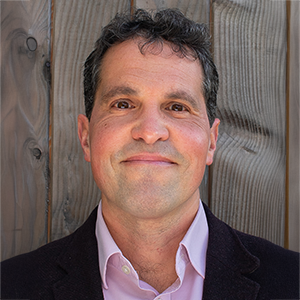
Gregory Radick is Professor of History and Philosophy of Science at the University of Leeds. Educated at Rutgers and Cambridge Universities, he has published widely on the history of the sciences of life and mind since the eighteenth century. His books include The Simian Tongue: The Long Debate about Animal Language (2007, awarded the 2010 Suzanne J. Levinson Prize), Darwin in Ilkley (with Mike Dixon, 2009), and Disputed Inheritance: The Battle over Mendel and the Future of Biology (2023, shortlisted for the 2024 Pickstone Prize).
He has served as President of the British Society for the History of Science (2014-16) and the International Society for the History, Philosophy and Social Studies of Biology (2019-21), and is currently a Trustee of the UK’s Science Museum Group. In 2024 he was elected a Fellow of the Linnean Society and was awarded the 2025 J. B. S. Haldane Lecture by the Genetics Society.
Talk title: 'Spatial metabolomics - deciphering the chemistry of biology'
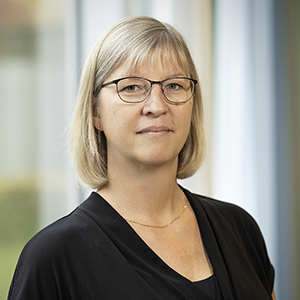
Ingela Lanekoff is a Professor of Analytical Chemistry, European Research Council (ERC) grantee, and head of the Center of Excellence “Chemical Mechanisms of Life.” After earning her PhD in Analytical Chemistry from Gothenburg University, Sweden, in 2011, she pursued postdoctoral training at the Pacific Northwest National Laboratory (PNNL) in the United States.
Professor Lanekoff specializes in developing and applying advanced mass spectrometry techniques for spatial and cellular metabolomics. Her innovations to enhance sensitivity and specificity include surface sampling capillary electrophoresis (SS-CE), the direct infusion probe (DIP), and pneumatically assisted nanospray desorption electrospray ionization (PA nano-DESI). Additional developments include the ion-to-image (i2i) data-handling software, single-cell metabolomics, and silver-doped methods for isomer differentiation.
Through these pioneering tools, Professor Lanekoff continues to push the boundaries of mass spectrometry, to reveal the complex chemistry of functional and dysfunctional biological systems.
Talk title: 'Current Status and Potential Future of Obesity Therapies'

Jim's research responsibilities include building and leading an early discovery research team and developing therapeutic agents focused on obesity and related diseases. Jim received his PhD from Deakin University in Australia and then relocated to the US for postdoctoral studies at the Pennington Biomedical Research Center. He then joined Amylin Pharmaceuticals (San Diego, CA) shortly after they received approval for exenatide, the first GLP-1R agonist, where he served in in vivo pharmacology and project team leadership roles.
Jim has subsequently worked at Novartis (Cambridge, MA), MedImmune/AstraZeneca (Gaithersburg, MD) and Gilead (San Francisco, CA), primarily in metabolic disease therapeutic areas. Jim has led teams that have successfully nominated clinical development candidates and is expert at combination approaches for the treatment of metabolic diseases.
Talk title: 'Will complex genetics ever advance clinical practice in type 2 diabetes?'
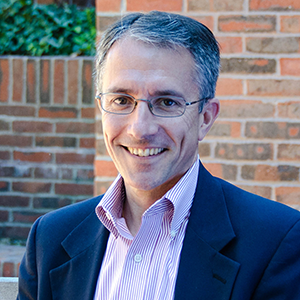 Jose Florez is the Physician-in-Chief and Co-Chair of the Department of Medicine at Mass General Brigham, Jackson Professor of Clinical Medicine at Harvard Medical School, and an Institute Member at the Broad Institute.
Jose Florez is the Physician-in-Chief and Co-Chair of the Department of Medicine at Mass General Brigham, Jackson Professor of Clinical Medicine at Harvard Medical School, and an Institute Member at the Broad Institute.
Dr. Florez obtained his B.A./M.S. and M.D./Ph.D. from Northwestern University. He completed his medical residency and a fellowship in Diabetes, Endocrinology and Metabolism at MGH, where he remains clinically active. Prior to becoming Department Chair, he led the Endocrine Division and Diabetes Unit. He has led high-throughput genomic studies in type 2 diabetes and related traits in multiple international consortia, advancing precision medicine and pharmacogenetics in diabetes.
In 2010 he received the Presidential Early Career Award for Scientists and Engineers, the highest honor bestowed by the U.S. government on science and engineering professionals in the early stages of their independent research careers. In 2019 he received the Father of the Year award from the American Diabetes Association.
Time & Date
Tuesday, March 11, 2025
Conference: 08:30 – 17:30
Dinner: 17:30 – 18:30
Venue
Jerne Auditorium
Floor 1, Maersk Tower
The Faculty of Health and Medical Sciences, University of Copenhagen
Blegdamsvej 3B
2200 Copenhagen
Denmark
Contact
If you have any questions regarding the conference, you can contact the organizers at cbmr@sund.ku.dk.
